
Weeding priorities
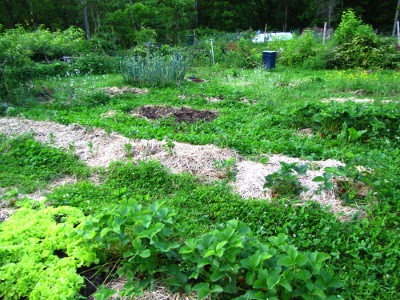 I
generally start out the weeding year by working my way regularly
through quadrant after quadrant, then cycling back around to the
beginning once I'm done. But the day inevitably comes when I get
a bit behind and have to break ranks to weed the beds that really need
it first. Which begs the question --- who needs it the most?
I
generally start out the weeding year by working my way regularly
through quadrant after quadrant, then cycling back around to the
beginning once I'm done. But the day inevitably comes when I get
a bit behind and have to break ranks to weed the beds that really need
it first. Which begs the question --- who needs it the most?
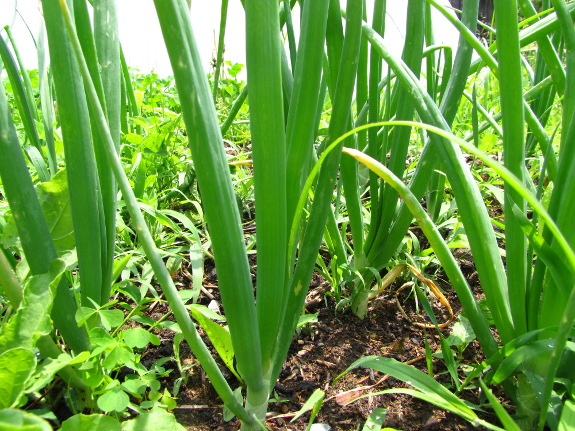
Small seedlings and slow
growers can be quickly overwhelmed by weeds. Earlier in the
season, all of the seedlings were top priorities, but summer crops like
beans, corn, and cucurbits aren't in much danger from a few weeds even
when they're barely sprouted. Instead, my biggest concern this
week are middle-aged carrots and onions --- both have been in the
ground for months now, but their leaves don't cast much shade and the
plants don't bulk up fast, so a few weeds can wipe them out
quickly. This bed of onions definitely should have been weeded a
week ago.
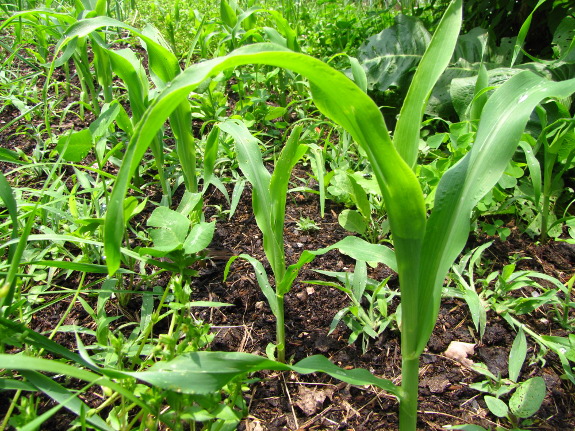
Next on the list is
those hardy summer seedlings. Sure, they won't melt away if I let
the weeds overwhelm them, but they will get stunted, and I'm always
itching for the first beans and tomatoes. While I'm weeding
between the plants, I also go ahead and do any thinning if I've put the
seeds too close together.
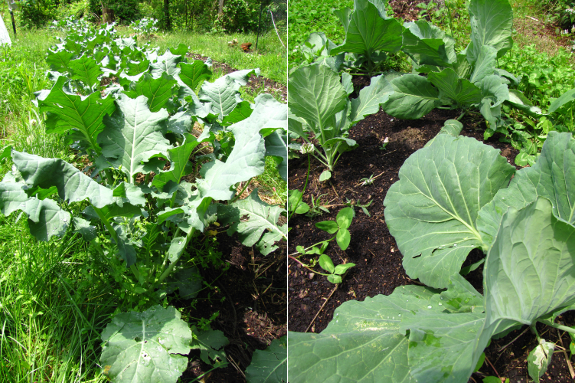
I won't get to it this
week, but the beds I'll be aiming to weed next week contain plants
currently in their prime like peas, cabbage, and broccoli. These
guys are growing so vigorously that they shade out most of the weeds
under their canopy, but it never hurts to keep the competition down.
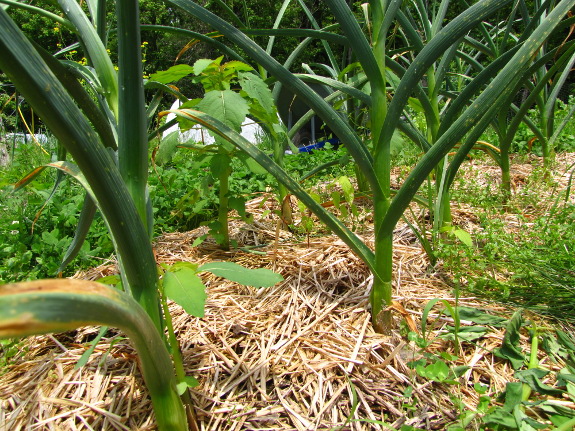
Way, way down on my list
are mature and overmature crops that will be pulled out in the next
couple of weeks, like garlic,
potato
onions, bolted spring greens, and so forth. Since I weed each
bed heavily after harvest and then immediately add compost and replant,
there's not much point in weeding these beds now unless there are huge
weeds bothering my vegetables. Granted, it would be nice to rip
out this chickweed and jewelweed before it goes to seed, but I can only
do so much.
Of course, if the
floodplain ever dried up and we were able to haul in some mulch, the
endless cycle of weeding would be reduced by 80%. Still, I have
to admit that I find the act of ripping weeds out of garden beds deeply
satisfying, especially when I have strawberry harvest to look forward
to for dessert.
Want more in-depth information? Browse through our books.
Or explore more posts by date or by subject.
About us: Anna Hess and Mark Hamilton spent over a decade living self-sufficiently in the mountains of Virginia before moving north to start over from scratch in the foothills of Ohio. They've experimented with permaculture, no-till gardening, trailersteading, home-based microbusinesses and much more, writing about their adventures in both blogs and books.
Want to be notified when new comments are posted on this page? Click on the RSS button after you add a comment to subscribe to the comment feed, or simply check the box beside "email replies to me" while writing your comment.
